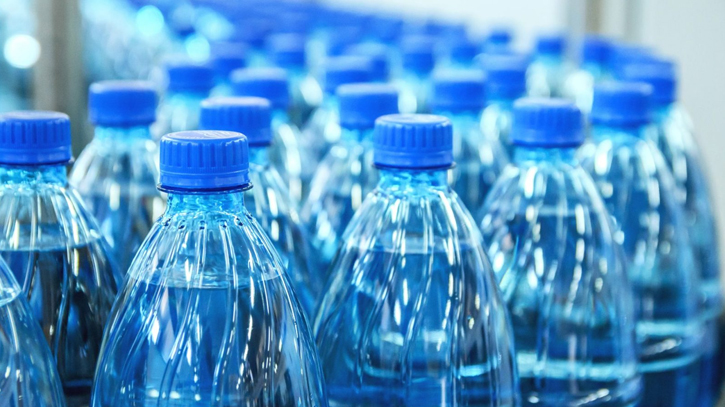
Photo: Collected
The demand for bottled water is gradually increasing in Bangladesh. However, many people tend to reuse the same plastic bottles multiple times. Experts warn that plastic bottles contain chemicals that can cause hormonal disorders and increase the risk of breast cancer, diabetes, and Escherichia coli (E. coli) infections.
Experts advise against the repeated use of plastic bottles for drinking water. Instead, they recommend using safer alternatives such as steel containers, glass jars, copper containers, and ceramic containers.
Research by the American Diabetic Association indicates that stainless steel or aluminum bottles are relatively safe, but they should not be used for extended periods. Plastic bottles release millions of plastic particles into the water, which can enter the body and increase toxin levels. Excessive plastic particles can alter insulin levels in the body, thereby increasing the risk of type 2 diabetes.
Researchers have found that less than 240,000 plastic particles can be present in a single liter (33 ounces) of bottled water. These particles are not visible to the eye and can enter the bloodstream when consumed. Measuring between 1 and 5000 micrometers in length, they are finer than a human hair. Most plastic water bottles on the market are made of single-use plastic, and continuous use increases the risk of cancer. Plastic bottles often contain harmful chemicals like Bisphenol A (BPA).
Assistant Professor Dr. Abdul Motaleb Matin from Dhaka National Medical College and Institute Hospital, referencing various studies, stated that high doses of nanoplastics and BPA can cause serious health issues. Certain plastics used in bottle manufacturing can affect insulin secretion, potentially leading to diabetes. Additionally, BPA can cause hormonal and chromosomal problems. Large amounts of plastic particles in the body can decrease sperm count in men and disrupt hormone secretion in women, particularly reducing the effectiveness of estrogen.
Dr. Abdul Motaleb Matin emphasized that plastics are not only laden with harmful chemicals but also release toxic substances like fluoride, arsenic, and aluminum, which are detrimental to human health. Scientists classify the chemicals used in plastic bottles as hormone disruptors.
Dr. Mehdi Hasan from the Department of Palliative Medicine at Bangabandhu Sheikh Mujib Medical University told The Daily Messenger that plastic bottles, especially those containing Bisphenol A (BPA), pose significant health risks. Prolonged use of these bottles allows harmful elements to leach into the water, which can lead to kidney problems if they enter the bloodstream. Additionally, the use of plastic bottles increases the risk of breast cancer and contains chemicals such as biphenyls, which can cause diabetes and fertility issues. The risks are further heightened when hot water is stored in plastic bottles. Dr. Hasan noted that most people are unaware of the dangers associated with drinking water from these bottles.
Experts advise that drinking water from plastic bottles is hazardous to health due to the materials used in their manufacture, such as polyethylene terephthalate (PET). When exposed to high temperatures, these materials can leach into the water, making it toxic. Therefore, plastic bottles should ideally be discarded after a single use to avoid potential health risks.
Researchers state that stainless steel or aluminum bottles are relatively safe for drinking water. Glass jars are also considered very safe for this purpose. However, there are differing opinions on how long these materials remain safe, so it is generally advisable not to use them for extended periods.
In most cases, the exact number of times a plastic product can be used for drinking water, i.e., its recyclability, is indicated by a number within a recycling arrow symbol on the product. This number shows how many times the product can be safely recycled. Researchers say that plastic products with recycling numbers 4 and 5 are safe to use for drinking water, but they should be replaced within one month to ensure safety.
Messenger/Fameema








